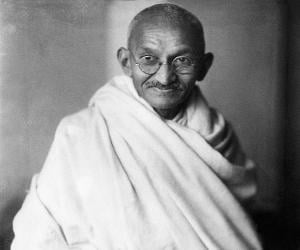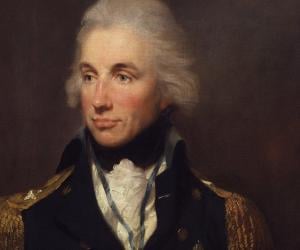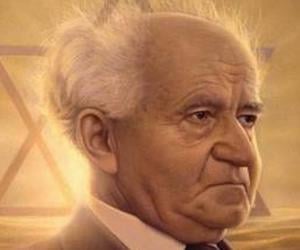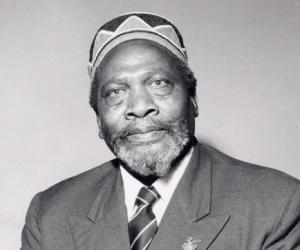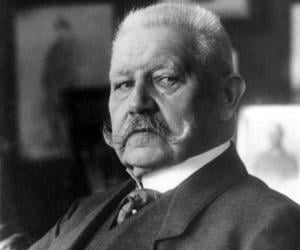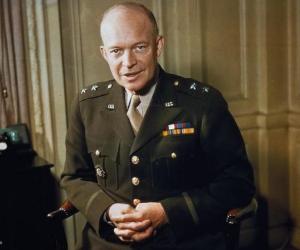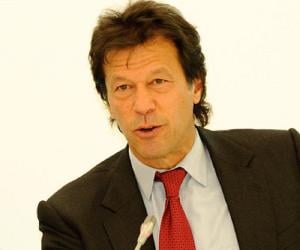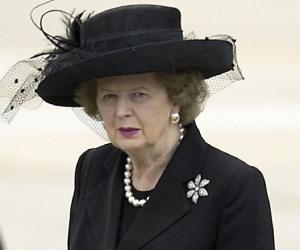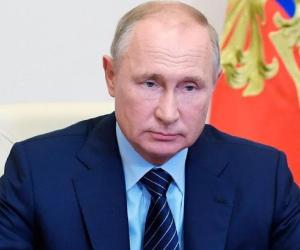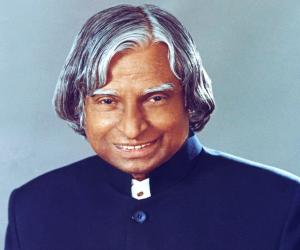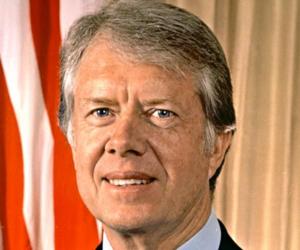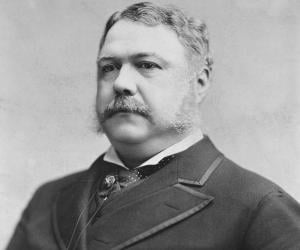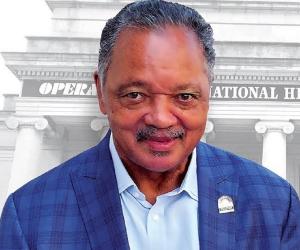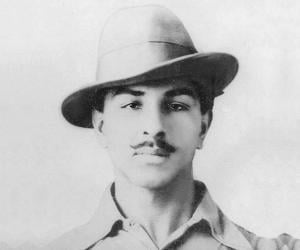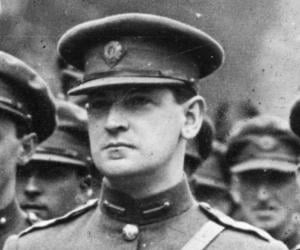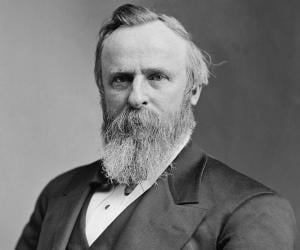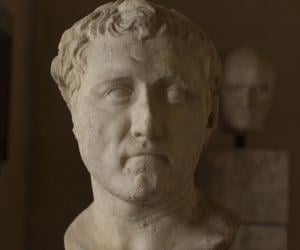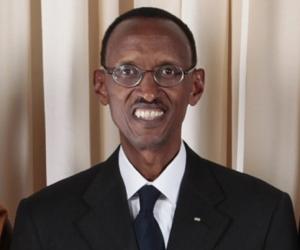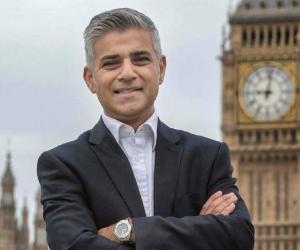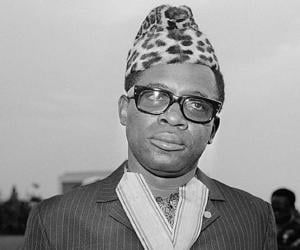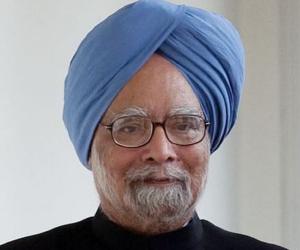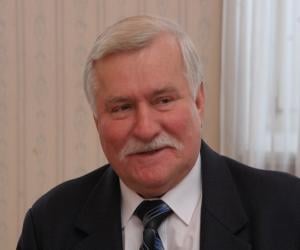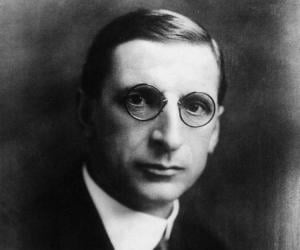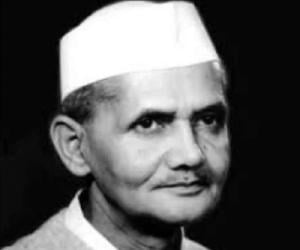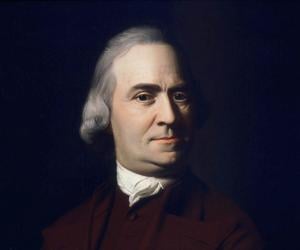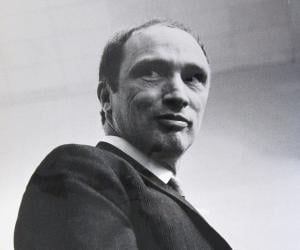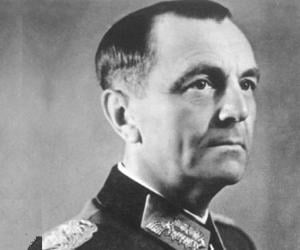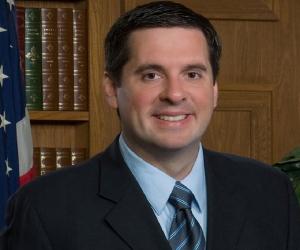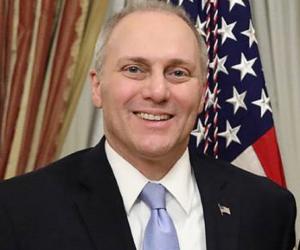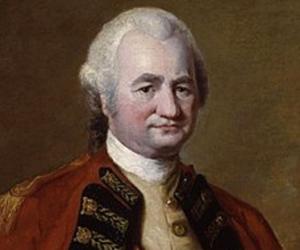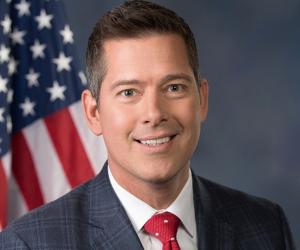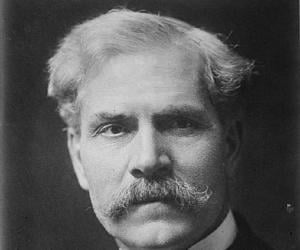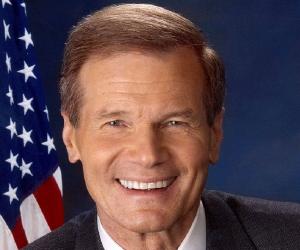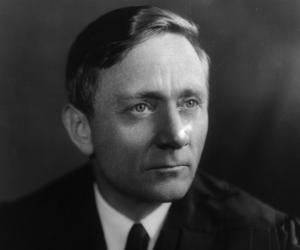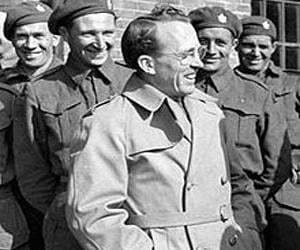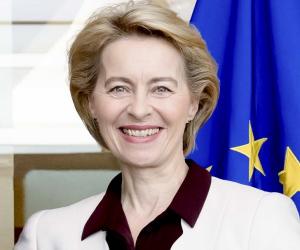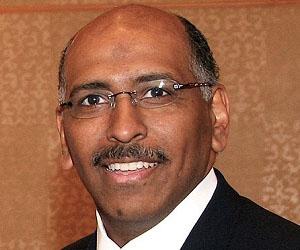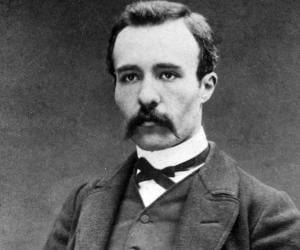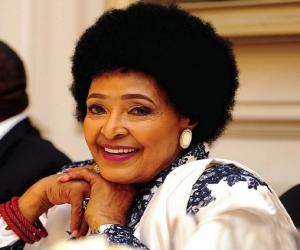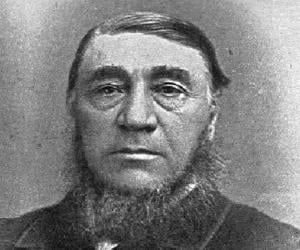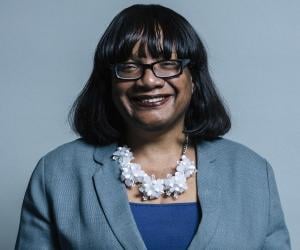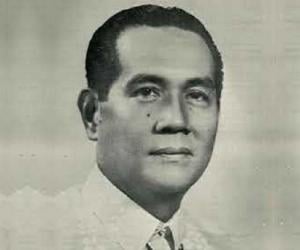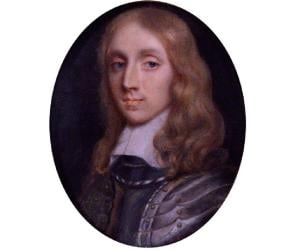An Indian lawyer and anti-colonial nationalist, Mahatma Gandhi was a major figure in India’s fight for independence from British rule. He is renowned for his employment of non-violent resistance and civil disobedience methods. Despite his popularity, he had numerous detractors as well and was assassinated in 1948. He is widely considered the Father of the Nation in India.
Horatio Nelson was a British flag officer whose inspirational leadership brought about several British naval victories, especially during the Napoleonic Wars. Regarded as one of Britain's heroic figures, Horatio Nelson's legacy remains influential and several monuments, including the Nelson Monument and Nelson's Column, have been created in his memory.
The 34th president of the United States, Dwight D. Eisenhower held office from 1953 to 1961. An army officer During World War II, he was part of many successful operations. He signed the Civil Rights Act of 1957, and his two terms as president saw widespread economic prosperity in USA. He is ranked high among American presidents.
Imran Khan is the former Prime Minister of Pakistan who was in office from 2018 to 2022. He is also the founder and chairman of the political party Pakistan Tehreek-e-Insaf. Before making an entry into politics, Imran Khan was an extremely popular international cricketer who led Pakistan to its first ever Cricket World Cup title in 1992. As a philanthropist, he established Pakistan’s first cancer hospital in Lahore.
United Kingdom’s first female Prime Minister and also the longest serving Prime Minister in the 20th century, Margaret Thatcher served three consecutive terms in the office from 1979 till 1990. Her political views and leadership approach, known as Thatcherism, got her the nickname of Iron Lady. Though controversial, she prominently ranks high in the list of the best British Prime Ministers.
The current President of Russia, Vladimir Putin is a popular politician, with the highest approval rating of any leader in the world as of July 2020. As a high-level politician who has the support of his citizens, he is a powerful figure in world politics. He has been accused by human rights organizations of persecuting political critics and activists.
Jimmy Carter, the 39th President of USA, is one of the rare Presidents whose legacy continues even after leaving office. He is known as a champion of human rights and a mediator of peace efforts across the world. His humanitarian works earned him the prestigious Nobel Peace Prize in 2002.
Bhagat Singh is one of the most revered freedom fighters of Indian Independence movement. His execution by the British rulers at a young age of 23 inspired many young people to join the freedom struggle. His life’s mission was to free India from colonial rule and his legacy as a symbol of bravery and patriotism continues to live on.
Considered ruthless by his opponents, Pompey was an ancient Roman general who was a veteran of many wars and played a key role in changing Rome from a republic to an empire. Pompey was first an ally of his more illustrious compatriot Julius Caesar whose daughter he married, and then became his enemy. He was assassinated in Egypt, an end not uncommon in history.
Mobutu Sese Seko was a Congolese military officer and politician. From 1965 to 1997, Mobutu served as the president of Zaire. During his long reign as the president, Mobutu garnered notoriety for nepotism and corruption. His life and work inspired Belgian filmmaker, Thierry Michel, to make a three-part documentary titled Mobutu, King of Zaire.
The 13th Prime Minister of India, Manmohan Singh became the first Sikh in office when he took office in 2004. A prominent economist and academic, he held several key posts in the Government of India in the 1970s and 1980s. Known for his humility, he has been described by the media as "one of the world's most revered leaders."
Lech Walesa is a Polish dissident and statesman. From 1990 to 1995, Walesa served as the first elected president of Poland. A Nobel Peace Prize laureate, Walesa was adjudged Time Person of the Year in 1981. In 1999, he was named in the magazine's most important people of the 20th century list.
Irish statesman Éamon de Valera served as the 3rd President of Ireland from 1959 to 1973. An influential political leader in 20th-century Ireland, he played a key role in introducing the Constitution of Ireland. Prior to becoming the president, he served as Taoiseach on three different occasions. He was an austere, stern, and unbending figure.
The second prime minister of India, Lal Bahadur Shastri, was known for his environmental campaigns and his support for the White Revolution. His slogan "Jai Jawan, Jai Kisan,” during the 1965 Indo-Pakistan War, became immensely popular. He ended the war by signing the Tashkent Agreement, but died a day later.
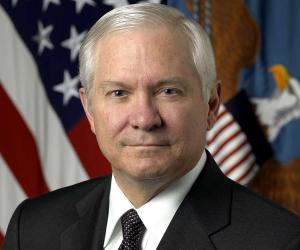
Pierre Trudeau was a Canadian politician who served as the 15th prime minister of the country. His personality generated excitement within Canada's mass media, which gave rise to the term Trudeaumania. The effects of Trudeau's contribution to Canadian nationalism can still be felt in Canada.
Friedrich Paulus was a German field marshal who played a major role in World War II. He is best remembered for his role in the Battle of Stalingrad, where he commanded the 6th Army. As German General Staff's deputy chief, he also helped plan Operation Barbarossa, the code name for the invasion of the Soviet Union.
Steve Scalise is the current U.S. House of Representatives minority whip and represents Louisiana's 1st district. Scalise made headlines when, in 2017, he and three others were injured after a left-wing extremist shot them with a rifle at a Congressional baseball practice. Strangely, he still remains a gun rights supporter.
Robert Clive was a military officer and the first British Governor of the Bengal Presidency in British India. Nicknamed Clive of India, Robert Clive is credited with laying the foundation of the East India Company rule in Bengal. He won the Battle of Plassey in 1757, which enabled him to establish Company rule in Bengal.
Politician, prosecutor, and former sports commentator Sean Duffy is currently a Fox News contributor. He earned a J.D. degree from William Mitchell College of Law and practiced law for several years before entering public life. He has been both a competitor and commentator on ESPN's Great Outdoor Games. As a politician, he is a member of the Republican Party.
Vaclav Havel was a Czech statesman, poet, playwright, and author. He is best remembered for his service as the President of the Czech Republic from 1993 to 2003. He also served as the President of Czechoslovakia from 1989 until its dissolution in 1992. Havel was a recipient of several awards including the Gandhi Peace Prize and Presidential Medal of Freedom.
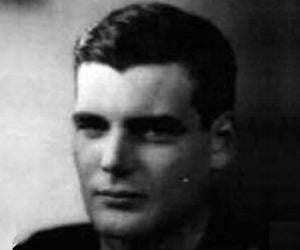
Tommy Douglas was a Scottish Canadian politician. From 1944 to 1961, he served as premier of Saskatchewan. His cabinet was the first to introduce North America's first single-payer, universal health care program. His life and career inspired a TV miniseries titled Prairie Giant: The Tommy Douglas Story, in which Douglas was played by actor Michael Therriault.
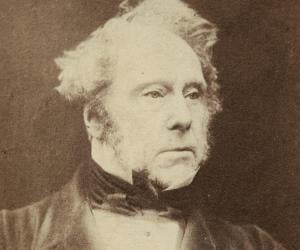
Georges Clémenceau, or The Tiger, who had served as the French prime minister, is remembered as a key figure of the French Third Republic. He not only played a major role in the Allied victory in World War I, but was also a key framer of the Treaty of Versailles.

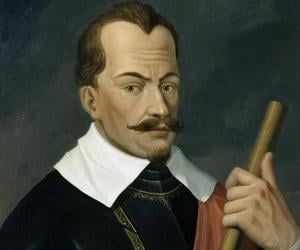
Albrecht von Wallenstein was a Bohemian statesman and military leader best remembered for his role in the Thirty Years' War. During the war, he served as the supreme commander of the armies of Holy Roman Emperor Ferdinand II. By the time of his death, Wallenstein was one of the most influential and richest men in the Holy Roman Empire.
Paul Kruger was a South African politician who served as the last State President of the South African Republic. Revered by his admirers as a tragic folk hero, Kruger was one of the most influential military and political personalities in 19th-century South Africa. His life inspired the 1941 German film Ohm Krüger, in which Kruger was played by Emil Jannings.
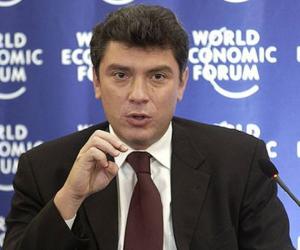
Boris Nemtsov was a Russian liberal politician and physicist. He served as the Deputy Prime Minister of Russia in 1998. A fierce critic of Vladimir Putin, Nemtsov claimed that Putin's government was becoming increasingly authoritarian. Nemtsov was murdered in 2015 in Moscow. Interestingly, Boris Nemtsov expressed fear that Vladimir Putin would hire men to kill him weeks before his assassination.
Diosdado Macapagal was a Filipino politician who served as the president of the Philippines from 1961 to 1965. Prior to his presidency, Macapagal served as the sixth vice-president from 1957 to 1961. Diosdado Macapagal is credited with inspiring his daughter Gloria Macapagal Arroyo, who later became the president of the Philippines.
